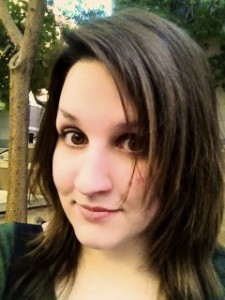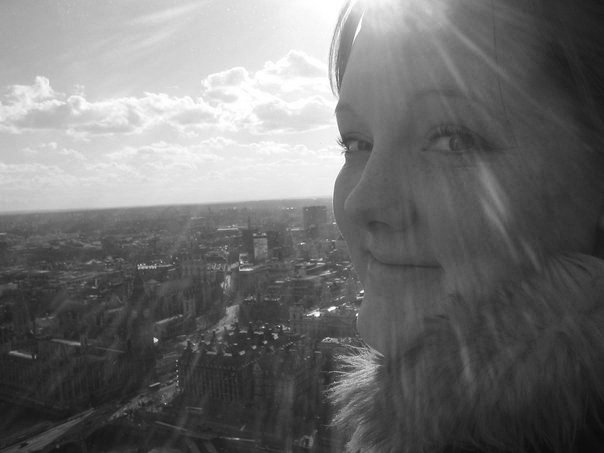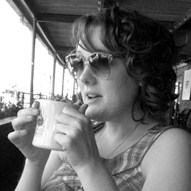 There are illusive, mysterious, hard to pin down ideas skirting away from us, on the periphery of understanding that cannot be expressed in prose, so next to sideways-glance silence, poetry is the best alternative. When I experience language in a way that forces me to witness disturbing aspects of the world or calms me in the undisturbed limbo outside of all else, or provides me with an insightful glimpse into myself, that insists that I consider the nature of life, I know I’m in the swirling Dust Devil of a real poem. I freely admit, my psychology is such that I am more comfortable being uncomfortable and vice versa as though the two were different, and perhaps they are, because poetry is always making finer and finer paradoxical distinctions. The world is infinitely more complicated and complex and unknowable than we are able to comprehend or articulate, so in those rare moments when I am darkly honest enough, with eyes that are not delusional, poetry is the linguistic vehicle by which I arrive at those almost impossible to grasp fleeting notions, emotions, psychological dilemmas, and vacancies of the heart. There is so much my intellect cannot solve and I am constantly in a state of awe.
There are illusive, mysterious, hard to pin down ideas skirting away from us, on the periphery of understanding that cannot be expressed in prose, so next to sideways-glance silence, poetry is the best alternative. When I experience language in a way that forces me to witness disturbing aspects of the world or calms me in the undisturbed limbo outside of all else, or provides me with an insightful glimpse into myself, that insists that I consider the nature of life, I know I’m in the swirling Dust Devil of a real poem. I freely admit, my psychology is such that I am more comfortable being uncomfortable and vice versa as though the two were different, and perhaps they are, because poetry is always making finer and finer paradoxical distinctions. The world is infinitely more complicated and complex and unknowable than we are able to comprehend or articulate, so in those rare moments when I am darkly honest enough, with eyes that are not delusional, poetry is the linguistic vehicle by which I arrive at those almost impossible to grasp fleeting notions, emotions, psychological dilemmas, and vacancies of the heart. There is so much my intellect cannot solve and I am constantly in a state of awe.
I am curious how other people live; I’ve always assumed they are privy to some secret that I am excluded from. For me it is not an illogical leap to say I have no interest in poetry that I understand completely on the first reading, but it must quietly insist that I come back. It must be intellectually intriguing, be flirtatious, politely demanding. Allegedly, there are huge portions of our brains that go unused, untapped, and those are the hemispheres where poetry burrows, reproduces, creates its own microscopic civilizations and builds secret tree forts. Its contains its own logic and laws, both scientific and social, are designed by the citizens of poetry who are so diverse no two are alike, like proverbial snowflakes, but like aliens on a secret mission to earth, we recognize each other but rarely acknowledge one another. That’s why, sometimes, a stranger will offer to buy you a drink in a bar with no apparent ulterior motive. Naturally poetry has its own lingo and the buildings are often invisible and the landscapes change directions according to the seasons (we like to stare at eclipses without cardboard boxes), and the trees go by their first names, and their leaves change color on whim and there are always peepholes in fences and there is virtually no distinction between dreams and objective reality and we can paint with our eyes, our X-Ray eyes, and see what others cannot. Gravity is not a requirement!
What is so euphonious about echoes of sound? Does rhyme make a statement feel truer? Is truth more musical than lies? Is, as I think Frost said, the iamb the voice of God? If you’re reading this you are likely a serious reader of poetry. So, if you were to construct an anthology of your top 20 favorite poems, what would your choices say about you? If someone put a metaphorical gun to your head and demanded you shrink your list to 10, then five, then that solitary one, what would it be, and what would that one poem say about you, your esthetics, your artistic sensibility, who you are in your essence? How does that one poem define you? Perhaps you cannot be defined by one poem. Is your inner self indistinguishable from the poem, as though your hidden voice wrote it? Do you simply recognize yourself in the poem? Are you relieved there’s another human being in the world who feels as out of place as you? Is the poem so like you or so unlike you? Is it something you believe you could have written or something so beyond your artistic ability you could compose for infinity and never come up with that perfect turn of phrase, the way the poet captured that difficult to capture…what is it? My friend says poetry solves everything and I’d like to believe that that’s true. But if poetry is the solution, what is the dilemma? Why do we believe life is so difficult or is life that difficult? Do we even know the right questions? Of course there are horrible atrocities that have made the most religious among us question the very existence of God. Is our world arbitrary or is there some mysterious pattern we are simply not intelligent enough to understand? How does one become comfortable in a world where, clearly, goodness does not always prevail?
The world is so selfish nobody gets to live forever. Is the moment in the poem you love the timelessness, the sense that you can suspend time, that instant when you feel on the verge of understanding the secret to eternal life? But I like poems that make me smirk! So many poems fall short, so short. Maybe they shouldn’t have been read by anyone other than the person writing the poem. Maybe they shouldn’t have even been written. But writing a poem, even a failed poem, makes us feel more included in the world, more in control of our destinies. I hate to admit this, but most of the poems I read in literary journals, and I read a fair amount, leave me wondering what the editor saw in this poem. A poem that falls short for me is an insult and an assault and a salt in the wound of my artistic sensibility. I may as well watch reruns of my favorite sitcoms. I go to poetry to be surprised, awakened if you will, and shocked out of myself so I can find myself. I like poems smarter than I am. I am infinitely curious about the world and would love to understand it a little better. I want to feel like the first one to arrive at a party, before the host is ready, and be the last one to leave, when the hostess is pleading with me, with only a look, to please go home. She’s tired and has a hectic day tomorrow. She might say something she regrets, something she wishes she could take back. Yes, I have worn out my welcome. We are sitting there staring at one another. Her husband is starting to do the dishes, clanging the pots. I have ignored all the subtle and not so subtle clues. So, we open a fresh bottle of wine and begin to tell our life stories, the privately exclusive things we think, that which we have never told anyone before. Those are the poems I like: becoming comfortable in the discomfort, revealing something utterly untapped, never spoken before.
My favorite writers have a distinctive, unmistakably individual voice. I often harp on that point to students, but I have begun to think about voice more in terms of the way writers esoterically think before they censor themselves with the written word. That’s where the poem begins and ultimately where it exists. Aside from the fact that we suffer from odd, egocentric logic, and our minds jump or bounce or leap based on associative ideas and experiences, interweaving with our emotional distress or glee, or suffering, or resignation, what is going on in our lives and our own little language packets, the real problem is by the time a poet writes what she thinks, by the time her thoughts become voice, she had edited, filtered, altered, adjusted her language to be safer, more politically correct, not as dark or jarring. How can the intellectually inoffensive be more interesting or approach the truth? Please don’t confuse this idea with good manners. I am not suggesting you act impolite, walk up to an obese man in Wal-Mart and tell him he’s fat. A: he knows it. B: it’s mean. Why do we shy away from that which makes the potential reader uncomfortable? In a nutshell, we don’t want our readers to think badly of us, that we are cruel, or bigoted, or lazy, or ignorant. Please plug in any negative adjective that you would like. We seek safety when art should make us pose the most difficult questions we only ask ourselves when we wake in the middle of the night in a cold sweat. As Jon Anderson, one of my teachers and a close friend said in his wonderful tongue-in-cheek poem—“The Secret of Poetry is Cruelty.” A poem cannot be so shy that it will not undress in front of you, but must be modest enough that it conceals something it will never share, only imply. A poem should contain an enormous Yes that spills & multiplies. And an understated No. Maybe good poem-ing should be so invisible that the reader sees only the world within the poem because we all know being in a state of wonder is more authentic than being in a state of knowing and only assholes claim to exist in the world of doubtlessness. I am perpetually unsure and the most intelligent among us are, undoubtedly, comfortable with ambiguity!





